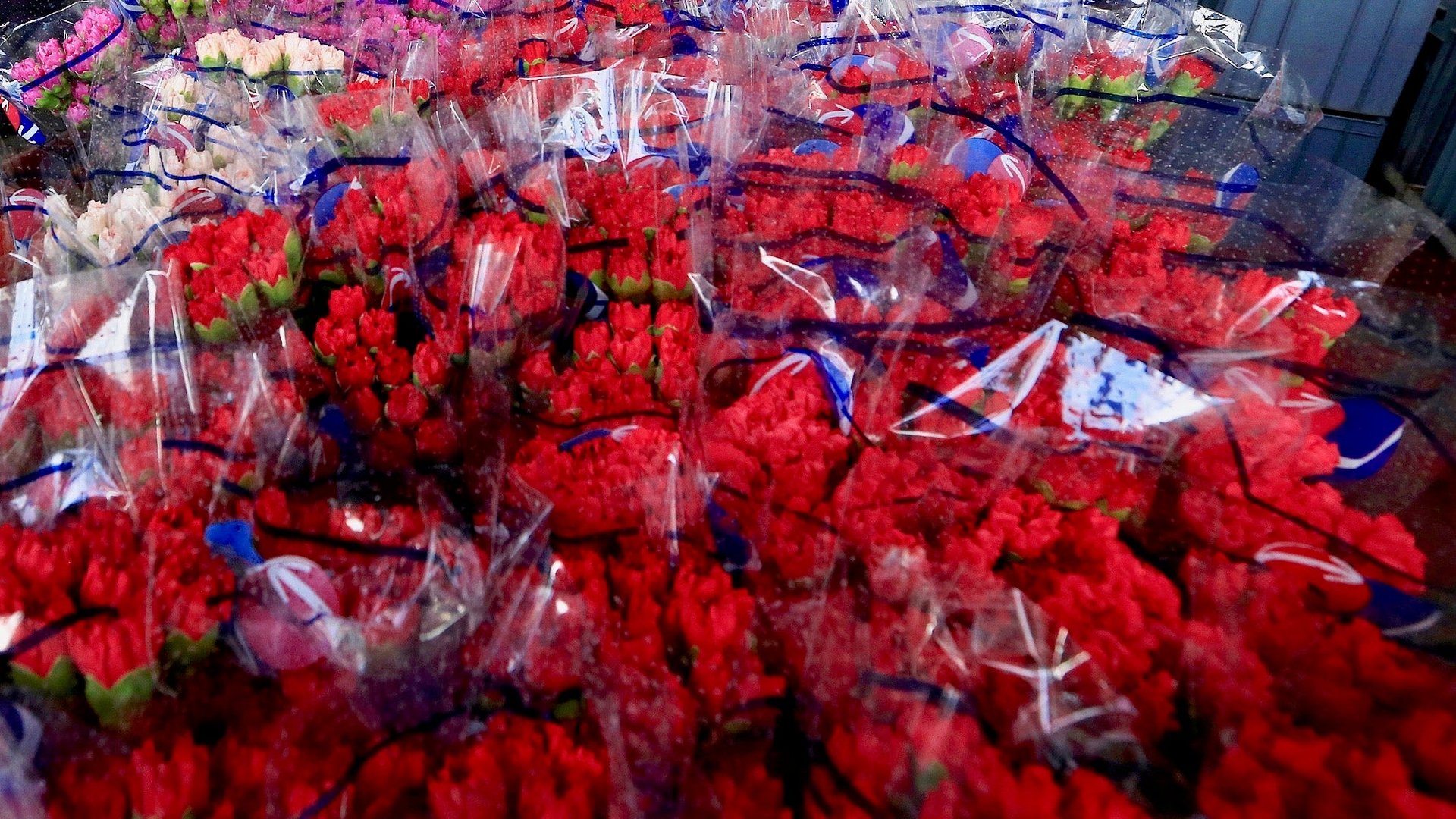The US government shutdown is about to get very personal
The US government shutdown probably hasn’t changed your life yet even if you live in the US, unless of course you’re a furloughed federal worker, one toiling without pay, an immigrant waiting on a court date, or a frequent flyer.


The US government shutdown probably hasn’t changed your life yet even if you live in the US, unless of course you’re a furloughed federal worker, one toiling without pay, an immigrant waiting on a court date, or a frequent flyer.
But come Valentine’s day, you may find yourself asking, “Where have all the flowers gone?” And it may not be long before you’re struggling to find a reasonably priced bell pepper at the supermarket.
That’s because the vast majority of perishable goods imported into the US come through the port of Miami, Florida—63% of perishables including fruits, vegetables, and fish, and 89% of all flowers. But unpaid government workers there, ranks thinned due to furloughs, are struggling to keep up with inspections of fruits, vegetables, and flowers.
On Dec. 22, president Donald Trump announced a partial government shutdown to protest a House budget that doesn’t, in his view, adequately apportion funds for a wall along the US border with Mexico. Now, a month later, “non-essential” employees at agencies like the Department of Agriculture and the Consumer Product Safety Commission are on furlough and have been for 31 days. Food inspections have continued, but the pace of work has slowed dramatically.
Milay Rodriguez, a traffic and import supervisor at Customized Brokers, a Florida logistics company, tells the Miami Herald that with a minimal number of inspectors available to check food for contaminants, perishable goods are taking longer and longer to inspect. These delicate shipments rely on timely oversight; normally, inspections are done within 48 hours of arrival at the port. Now, they are taking up to two weeks, and some items have already gone to waste during the delays. Rodriguez’s company traced a shipment of bell peppers, for example, that waited two weeks for inspection and was ultimately rejected due to spoilage.
Consumers may soon feel the effects when shopping for food and other perishables. As importers begin to absorb the price of spoilages caused by delayed inspections, the cost of fruits and vegetables will be passed on to markets and ultimately consumers.
Meanwhile, with Valentine’s Day fast approaching and the vast majority of bouquets traditionally coming in, via Florida, from South America—most of the 200 million roses Americans purchase for the holiday are grown near Bogota, Colombia—there may be a premium on flowers in February. Normally, around this time of year, the Association of Floral Importers of Florida works with Customs and Border Protections officials to ensure that added inspectors are hired to handle the rose rush.
However, with the government shut down for now, no extra inspectors have been hired yet and plans to do so are stalled. Christine Boldt, executive vice president of the association, tells the Miami Herald she expects to feel an effect. “But let’s not panic,” she says.
After all, if you can’t get your sweetheart red roses, you can still express your affection with some other romantic item not quite as perishable as fresh blooms, like chocolate or, perhaps better still, wine. And then pour one out for the federal workers, who probably won’t be celebrating at all, given that many—whether court or port workers—are just struggling to survive right now.